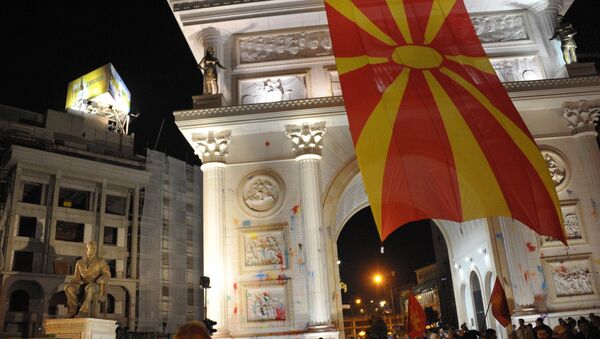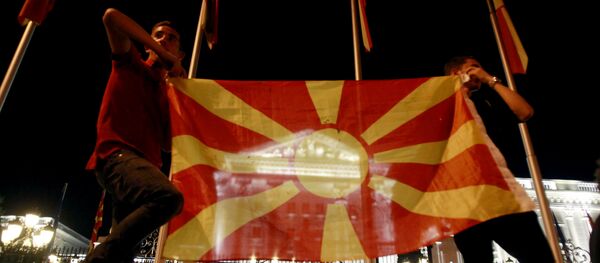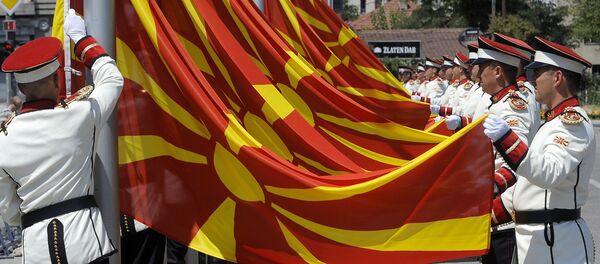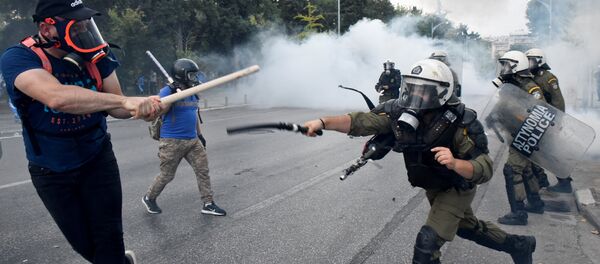One Question
The sole question being put to voters in Sunday's referendum reads as follows: "Are you in favor of European Union and NATO membership by accepting the agreement between the Republic of Macedonia and the Republic of Greece?"
For the referendum to be considered successful, the State Electoral Commission requires that turnout must comprise at least 50 percent of the republic's estimated 1.8 million eligible voters. Polling ahead of the vote saw expected turnout hovering between 40 and 60 percent.
The VMRO-DPMNE and other opposition forces plan to boycott the vote. President Gjorge Ivanov has described the proposed deal with Athens "legal and historic suicide" and a "flagrant violation of sovereignty," and vowed not to sign the treaty, which will also require approval by the country's legislature.
Western Pressure
On Friday, Russian Foreign Minister Sergei Lavrov fired back, accusing Western powers of meddling in Macedonia's internal affairs. Earlier, the Russian diplomat outlined a principled Russian position of silence on the issue out of respect for Macedonia's sovereignty.
Speaking to Sputnik, Greek political science professor Constantinos Grivas said that Western powers' "unprecedented" interference in the vote serves to show that the referendum and the Greek-Macedonian agreement itself are being "advanced not in the interests of solving problems between Athens and Skopje, but to serve geopolitical purposes," namely, Macedonia's entry into NATO.
"The West is seeking to paint the Balkan map with the 'correct colors.' In this way, it intends to prevent Russia from any opportunities to exert even the slightest influence in the Balkans in the future," Grivas explained.
Albanian Minority Pressure
In the 1990s, Albanian nationalist politicians had already proposed the idea of federalization as an interim step toward breaking off from Macedonia and joining Albania proper. The ethnic Albanian minority in Macedonia, estimated to account for some 25 percent of Macedonia's population of 2 million, is largely concentrated in the country's northwest near the border with the breakaway Serbian province of Kosovo.
Does the Referendum Matter?
Speaking to Sputnik, Macedonian political scientist Dr. Zidas Daskalovski suggested that even if the 50 percent turnout barrier isn't reached, the Zaev government will still attempt to move forward with its plans, as indicated by the vote's "consultative," non-binding nature.
However, given the VMRO-DPMNE's strong position in Macedonia's Parliament, which includes 51 of the total 120 seats, Daskalovski suggested that the real political fight will start after the referendum, because a two-thirds majority of 80 votes is required to amend the country's constitution.
Zaev's strategy, according to Nano Zhuhin, will be to try to convince some of the VMRO-DPMNE lawmakers to reconsider their opposition to the deal with Athens.






